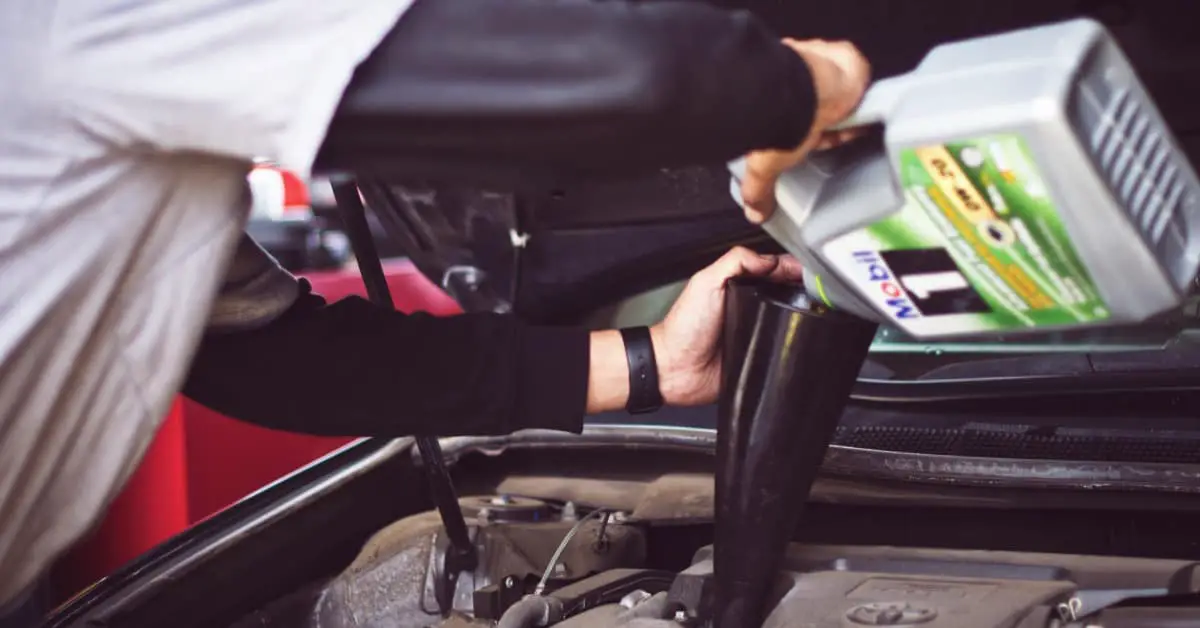Getting ready to hit the open road for your next big adventure?
Road tripping around the U.S. has become a favorite pastime for many in recent years. It’s inexpensive, lets you go at your own pace, and shows you the landscape in ways flying simply can’t.
Up ahead, we’ll go over some ways to prep your car to prevent on-the-road frustration and calamity. We’ll also go over the things you will want to make sure you have in your car to keep you safe on the road.
Ready? ¡Vamos!
Jump To
Road Trip Car Maintenance Checklist
1. Check your fluids and air filter
If you’re a whiz with cars, you can certainly do this step yourself. Or, you can take your car in for a tune-up at your local mechanic’s shop.
Basically, you need to check your:
- Engine oil (motor oil)
- Radiator fluid
- Transmission fluid
- Brake fluid
- Windshield fluid
- Power steering fluid
Also, check your air filter as you may need yours replaced. Fortunately, this isn’t a major expense.
2. Take a good look at your tires
Of all the checklist steps, this is one of the most important. Your tires are going to have to make it several hundred (or several thousand!) miles, after all.
It’s probably a good idea to have your tires rotated if they’re due. This is not only for their longevity, but it’s also so that you don’t become frustrated with any unnecessary vibrations during your trip. Unbalanced tires tend to vibrate annoyingly.
If your tires are in such dire straits that they need to be replaced and not just rotated, doing this before your road trip is also a good idea. Check your tire tread yourself, or have your mechanic do it to make sure there aren’t any bald spots and you’ve got plenty of miles left in them.
Finally, right before you take off on your trip, check each tire’s air pressure. Equal pressure is essential for a smooth ride and healthy tires throughout your trip.
3. Check all hoses and belts
This is something most people will want to see their mechanic about. They’ll know what to look for, but essentially, you’re searching for any leaks, cracks, or potential brittleness in the hoses.
As for belts, these should all have tight connections and no missing notches.
4. Try all your light bulbs
Check your headlights, tail lights, brake lights, and blinkers. Then, check all your interior lights. Bulbs are usually easy to replace, but it’s far more convenient to do the job before your trip.
5. Check your battery
Car starting up slowly? You could be in need of a replacement battery. Again, this is good to purchase now, before you have to be jumped at a gas station in the middle of nowhere.
In addition to checking your battery’s charge, also make sure the positive and negative terminals aren’t corroded or loose.
6. Fill up your tank with gas
Gas fill-ups will be an inevitable part of your road trip. Still, you can give yourself a head start by filling up your tank the night before the big day, instead of five minutes after you leave the house.
7. Test drive your vehicle
Lastly, take your car for a test spin around the block and out on the highway. Use your blinkers, test the air conditioning and heat, play the radio, and test connect your phone.
Packing Essentials: What to Have in Your Car Before Your Road Trip?
Now that you have your car in tip-top shape for your trip, it’s time to load it up to hit the road.
Aside from your own suitcases and personal items, make sure to pack these road trip essentials in your car:
1. Driver’s License
You’d be surprised how many people forget their driver’s license! Don’t forget to make sure it doesn’t need to be renewed.
2. Vehicle Registration
Make sure your vehicle and plates are registered and up-to-date. Keep your vehicle registration information in your glove box or in a safe place alongside your insurance information.
3. Insurance Information
Once again, check that you have up-to-date insurance information for your vehicle. Keep in mind that if you do forget this information or misplace it, you can likely get a PDF version of your insurance coverage from your provider online or they may even have an app.
4. Your Vehicle’s Manual
Suddenly, the windows won’t go down, or you’re getting a scary error message on your dashboard. What do you do? Look at the manual of course! It helps to always keep your car manual in your glove box.
5. First-Aid Kit
Your first aid kit should include things like Band-Aids, gauze, antiseptic wipes, rubber gloves, a breathing barrier, and basic medicines like Tylenol and ibuprofen. It’s also useful to have a small booklet with basic first-aid administration guidelines included.
6. A Spare Key
Never leave for a road trip without a spare key. The last thing you want to do is be stuck somewhere without a way to get into and start your car.
7. A Spare Tire and Tire-Changing Kit
Flat tires happen. Be prepared.
Not only should you have a spare tire in your vehicle, but you should always check that it is fully pumped up with air before you leave. Also, check that you have the appropriate tire-changing tools.
8. Seasonal Accessories
At certain times of the year, you’ll want to pack other items as well.
Most notably, if you’ll be traveling during the winter months, make sure you have an ice scraper, some salt, a shovel, and extra warm clothes and boots packed. And if traveling through mountain roads, tire chains may be necessary.
For more tips on what to bring on your road trip check out:
Family Road Trip Essentials: Things You Need for a Road Trip with Kids
Best Weather Apps for Your Road Trip
Road Trip Food Ideas: Make-Ahead Meals and Packable Snacks
Road Trip Accessories You Need For Your Next Road Trip
When Are You Leaving? Start Planning Now!
Properly preparing a car for a road trip means starting early. Make sure you’re getting on top of your maintenance checklist at least two weeks to a month before your departure date, and start packing around one week prior.
Following these planning tips and guidelines will ensure you have a safe and amazing trip with memories to last a lifetime!


